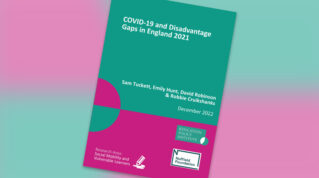The 16 to 19 tuition fund will be opened up next year to students who have not achieved a grade 6 in English or maths GCSE, the government announced today.
But a sector leader has warned this eligibility extension has been introduced too late and predicts “many” colleges and training providers will be forced to return unspent funds.
The tuition fund was first rolled out in 2020/21, backed by £96 million, as part of the government’s Covid-19 education catch-up package.
It was extended into 2021/22 with an additional £102 million. An extra £222 million has since been made available to run over 2022/23 and 2023/24.
The fund aims to support small group tuition for sixth form-aged students in English, maths and other subjects that have been disrupted by the pandemic. Students have so far been eligible if they have not achieved a GCSE grade 4 or 5 in English and/or maths or have a grade 4 or above and are from an economically disadvantaged background.
Colleges, sixth forms and other training providers have complained that the eligibility criteria is too restrictive.
In response, the DfE announced today that from 2022/23: “Students who have not achieved a grade 6 in English and/or maths at age 16 will be eligible to receive tuition support.”
Students in receipt of 16 to 19 bursary funding will also be eligible to receive tuition support next year, “even where they do not meet the current eligibility criteria of living in the 27 per cent most economically deprived areas of the country”.
James Kewin, deputy chief executive of the Sixth Form Colleges Association, welcomed the move as it “will ensure more students will benefit from small group tuition”.
But he warned: “As demand for the tuition fund far outstrips the number of eligible students, and as these new flexibilities do not kick in until next year, it means many institutions may still end up returning unspent funds for 2021/22.
“That does not reflect lack of need – quite the opposite – it reflects that narrowness of the eligibility criteria.”
Kewin added that it would make more sense to allow colleges and providers to identify the students that should benefit from the fund and permit any unspent funds from 2021/22 to be carried over into next year.
The DfE also announced today there will be an automatic renewal process for colleges and providers who received 16 to 19 tuition funding in 2021/22. Those who have not yet accessed the fund will need to opt-in through a digital form.
The requirement for colleges and providers to publish a “statement of intent” on how they intend to deliver the fund will be removed next year and replaced with the submission of an “end of year financial report”.
Jane Hickie, chief executive of the Association of Employment and Learning Providers, welcomed the extension of the fund but called on the DfE to go further by opening it up to apprentices.
“This does extend the lack of parity with 16 to 19 year old apprentices who are not eligible for this support,” she said.
“Therefore, AELP would like to see this fund expanded to treat work and classroom based provision equally.”

















Your thoughts